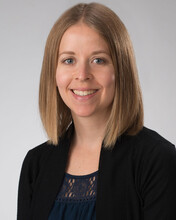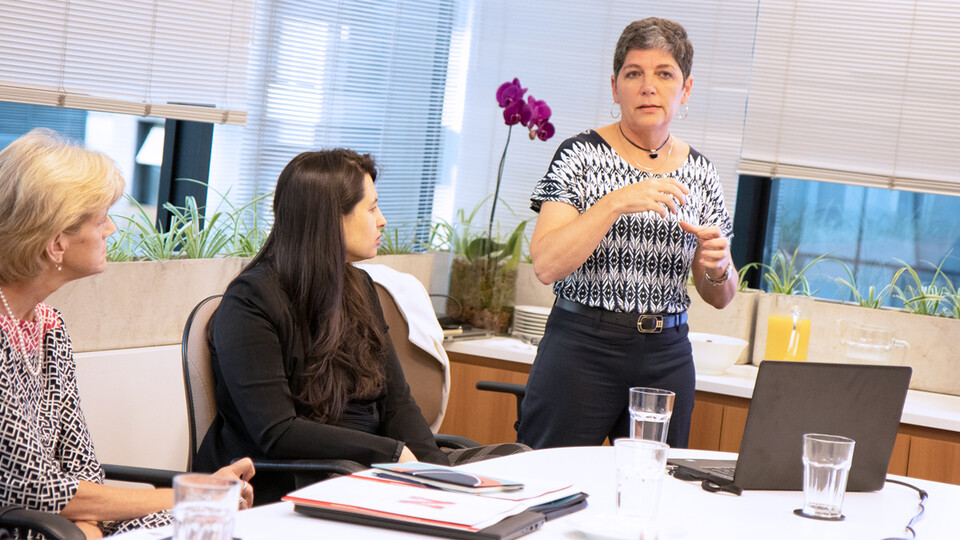Dana Ludvik, June 25, 2020
Tool uses cultural lens to evaluate young children’s development
It is estimated that up to 18% of children have developmental delays worldwide. However, fewer than one-third of these children are identified by their health care provider, and children whose delays are not addressed early on are at risk for adverse outcomes, including emotional, behavioral and health problems later in life.
Until recently, Brazilians lacked a formal means to effectively monitor children’s developmental trajectories and flag those with possible delays.
A global collaboration among early childhood researchers, which grew from the Nebraska–Brazil Early Childhood Partnership, is helping to close this critical assessment gap.
The researchers combined their experience and expertise to build a robust, multidimensional screening tool to evaluate young children’s development across Brazil. It is now ready to be put into pediatric practice.
The Dimensional Inventory for Child Development Assessment (Inventário Dimensional de Avaliação do Desenvolvimento Infantil), or IDADI, is the first such tool to be developed and standardized specifically for use with children living in Brazil, taking into account the unique culture and experiences of the target population.

Natalie Koziol
Denise Ruschel Bandeira, a professor at Brazil’s Universidade Federal do Rio Grande do Sul, created the instrument and partnered with Natalie Koziol, research assistant professor in the Nebraska Center for Research on Children, Youth, Families and Schools, to fine tune it. Former CYFS methodologist Leslie Hawley also contributed to the pilot project. “Our goals were to refine the instrument and evaluate whether there is adequate evidence that scores generated from it truly capture children’s development in Brazil,” Koziol said.
The collaboration yielded developmental norms for IDADI, which are key benchmarks to compare children in a given context. These norms help paint an accurate picture of what is and is not developmentally normal for young children, specifically in Brazil.
“If you’re a practitioner in Brazil you want to know how a child is developing relative to other children living in Brazil — not relative to children living in the United States, the U.K. or Australia, who may have very different experiences,” Koziol said. “We made a conscious effort to ensure that each item is culturally relevant.”
To develop the tool, Brazilian researchers surveyed mothers of more than 2,100 children, birth to age 6, from all five regions of Brazil. Participants included children with and without a formal diagnosis of developmental delays from varying geographic and socioeconomic backgrounds.
Researchers gathered information about children’s cognitive and motor skills, communication and language, social-emotional development and adaptive behavior. They also accounted for other variables, such as child age, developmental diagnosis and maternal education.
After their analyses, the researchers were pleased to find strong reliability and validity evidence to support the use of IDADI scores to evaluate young children’s development.
The tool is ready for widespread use in clinical settings to help identify those who might have developmental delays or disabilities, which the researchers hope will lead to earlier interventions and better outcomes.
“The appropriate normative information gained from using this fully refined and robust instrument has potential to help practitioners in Brazil monitor children’s developmental trajectories more effectively and to take appropriate steps to address their needs,” Koziol said.
IDADI may also contribute to child development studies in Brazil and inform policy and economic decisions related to early childhood development, health, education and social assistance.
The research team is currently developing a short version of the IDADI survey to help practitioners quickly screen for developmental delays, as well as a direct assessment to be used as an alternative to mothers completing the survey.
This project underscores the need for early childhood researchers to promote the healthy development of all children, Koziol said.
“The strong partnership we have with our colleagues in Brazil helped bring greater cultural sensitivity and awareness to the research, which supports our shared goal to improve outcomes for all children — not just those living in the U.S. or who belong in the majority group,” Koziol said. “This project really highlighted for me the importance of understanding children’s diverse contexts and the need to interpret their development within that particular context.”
To learn more about the research and explore videos, photos and other resources, visit the Nebraska-Brazil Early Childhood Partnership website.






